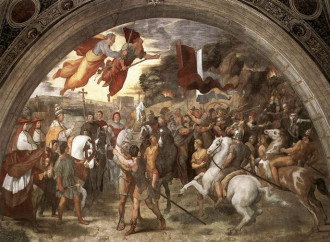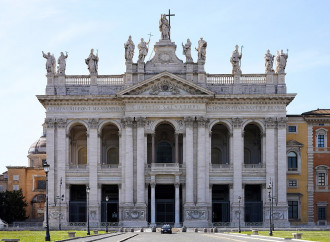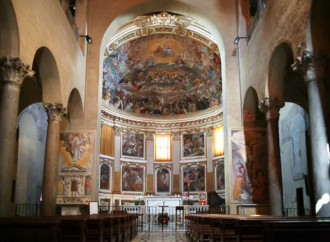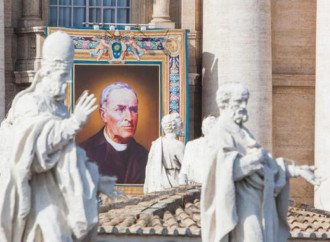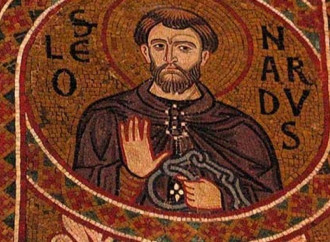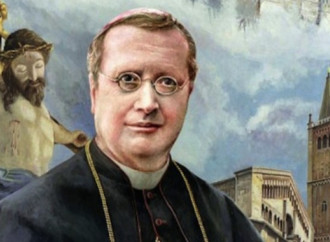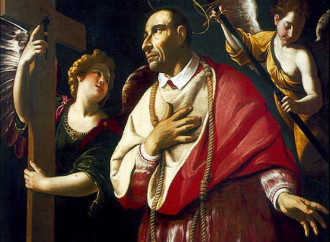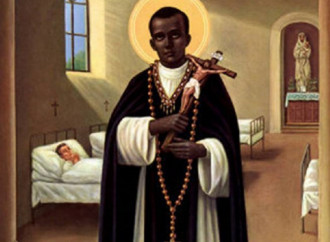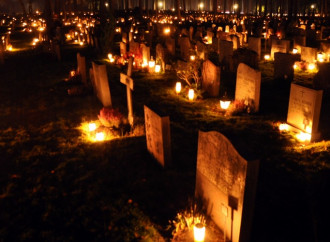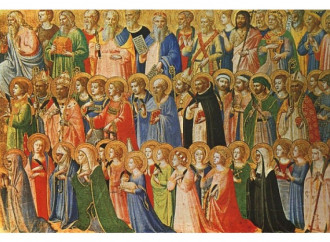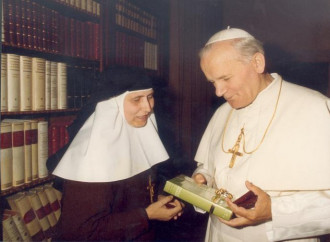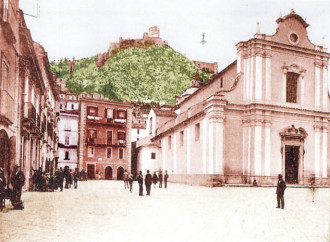Saint Leo the Great
He fought Pelagianism, Nestorianism, and Manichaeism. And, above all, with the famous Tomus ad Flavianum he disavowed the Eastern monk Eutyches and his Monophysism, which heretically denied the human nature of Jesus
Dedication of the Lateran Basilica
Its full name is “Papal Archbasilica of the Most Holy Saviour and Saints John the Baptist and the Evangelist in the Lateran”. As the cathedral of Rome, it is in this basilica that the Pope's investiture on the Roman Cathedra is celebrated as Peter's successor and therefore pastor on earth of the universal Church
Four Crowned Saints
The stonemasons Simphorianus, Claudius, Nicostratus and Castorius, known as the Four Crowned Saints (†304), suffered martyrdom during Diocletian's persecutions
Saint Vincenzo Grossi
He spent hours in the confessional, educating consciences in the Christian virtues and nourished himself with prayer, penance and contemplation of the Blessed Sacrament.
Saint Leonard of Noblac
He was baptised on Christmas Eve 496 by St Remigius, with King Clovis as godfather. He declined the offer of a bishopric because he preferred the hermit life
Saint Guido Maria Conforti
The founder of the Xaverians never ceased to encourage the evangelisation of non-Christians in the world.
Saint Charles Borromeo
He was rightly called “a second Ambrose” and is considered one of the most shining examples of holiness that animated the Catholic Reformation
Saint Martin de Porres
There are many supernatural gifts with which God adorned the humble soul of Martin de Porres (1579-1639), a great Peruvian saint who did not have an easy childhood.
Commemoration of all the Faithful Departed
Custodian of Divine Revelation and herald of the Risen Christ, the Church today commemorates all the faithful who have died, i.e. those who died in the grace of God. On their behalf we are called to offer good works.
All Saints
Today the Church celebrates the solemnity of All Saints, including those not canonised and whose names we do not know, “united in Christ in glory”, as the Roman Martyrology recalls.
Saint María de la Purísima of the Cross
For almost 22 years, until her death, she was the Mother General of the Company of the Cross. For certain manifestations of holiness, she is reminiscent of Mother Teresa of Calcutta...
Saint Germanus of Capua
He dedicated himself to an intense spiritual life through prayer, penance and the reading of Christian writings. In his Dialogues, Pope Gregory the Great reports two episodes relating to Germanus
